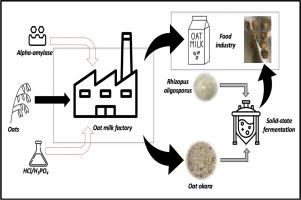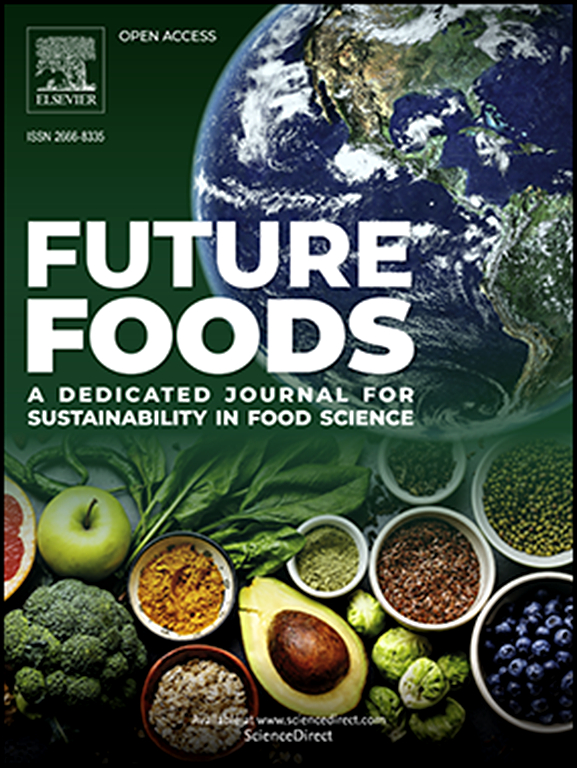Impact of oat pretreatment on okara composition and its upcycling using a filamentous fungus for food applications: A biorefinery approach
IF 8.2
Q1 FOOD SCIENCE & TECHNOLOGY
引用次数: 0
Abstract
Oat milk production generates a substantial amount of a byproduct, named oat okara, which holds promise in advancing circular economy practices in the food industry when upcycled into food products or ingredients. In this study, filamentous fungus, Rhizopus oligosporus was employed to enhance nutritional properties, including a reduction of antinutritional factors. The fermented oat okara food product showed a modest increase in protein content, improvement in amino acid profiles, and reduction in phytic acid and saturated fatty acids relative to raw okara. In the second phase of the study, oat okara was produced through various enzymatic (α-amylase) and acidic (HCl, H₃PO₄) pretreatments to assess their impact on okara composition. The results demonstrated substantial starch reduction, especially under high enzyme load, and notable increase in protein and fiber contents. Overall, the results underscored that controlling processing parameters—particularly enzyme dosage and acid type—can significantly alter oat okara’s nutritional and functional properties, making it more suitable for incorporation into functional food products.

燕麦预处理对okara成分的影响及其在食品应用中的丝状真菌升级利用:一种生物精炼方法
燕麦奶的生产产生了大量的副产品,称为燕麦okara,当它被升级为食品或配料时,有望推动食品行业的循环经济实践。在本研究中,采用丝状真菌,少孢根霉来提高营养特性,包括减少抗营养因子。发酵后的燕麦okara食品与生的okara相比,蛋白质含量有所增加,氨基酸谱有所改善,植酸和饱和脂肪酸有所减少。在第二阶段的研究中,通过不同的酶(α-淀粉酶)和酸性(HCl, H₃PO₄)预处理来生产燕麦kara,以评估它们对kara成分的影响。结果表明,淀粉含量显著降低,特别是在高酶负荷下,蛋白质和纤维含量显著增加。总之,研究结果强调,控制加工参数,特别是酶的用量和酸的类型,可以显著改变燕麦的营养和功能特性,使其更适合加入到功能食品中。
本文章由计算机程序翻译,如有差异,请以英文原文为准。
求助全文
约1分钟内获得全文
求助全文
来源期刊

Future Foods
Agricultural and Biological Sciences-Food Science
CiteScore
8.60
自引率
0.00%
发文量
97
审稿时长
15 weeks
期刊介绍:
Future Foods is a specialized journal that is dedicated to tackling the challenges posed by climate change and the need for sustainability in the realm of food production. The journal recognizes the imperative to transform current food manufacturing and consumption practices to meet the dietary needs of a burgeoning global population while simultaneously curbing environmental degradation.
The mission of Future Foods is to disseminate research that aligns with the goal of fostering the development of innovative technologies and alternative food sources to establish more sustainable food systems. The journal is committed to publishing high-quality, peer-reviewed articles that contribute to the advancement of sustainable food practices.
Abstracting and indexing:
Scopus
Directory of Open Access Journals (DOAJ)
Emerging Sources Citation Index (ESCI)
SCImago Journal Rank (SJR)
SNIP
 求助内容:
求助内容: 应助结果提醒方式:
应助结果提醒方式:


